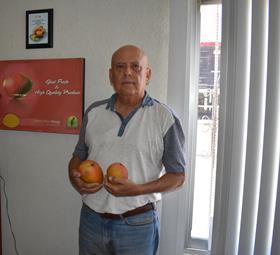
How is the current campaign evolving?
Jorge Armando Celis: Demand is down and we’re experiencing some logistical problems because of the coronavirus crisis. However, it’s worth pointing out that the quality of our mangoes is extraordinary this season and that in spite of the pandemic, companies are doing all they can to supply their customers while protecting the safety of their workers.
Roughly what proportion of Mexican mango production do EMEX members account for?
JAC: Between them our members have 90,000-100,000ha of production, equivalent to about 50 per cent of Mexico’s total planted area. All of our mangoes come from US Department of Agriculture certified farms. The production calendar begins in Chiapas, Oaxaca, Guerrero and Michoacán, before moving on to Colima, Jalisco and Nayarit and finally Sinaloa.
In 2019 Mexico exported approximately 63,500 tonnes of mangoes and we expect to reach a similar volume in 2020.
How have exports evolved in recent years?
JAC: Due to its geographical proximity and the longstanding commercial relationships we have forged there, the US remains our natural market. But we also export to Europe, Asia and the Middle East. These markets are very important for Mexico as they complement the North American market. We’re currently seeking to consolidate our position in Japan, the Middle East and Europe.
What efforts has the industry made to improve safety and traceability of its mangoes?
JAC: All our member companies have implemented strict safety systems in farms and packhouses that comply with US food safety legislation. And the fact that we’re supplying markets like Japan and the European Union, demonstrates that we are able to meet even the strictest phytosanitary criteria.



